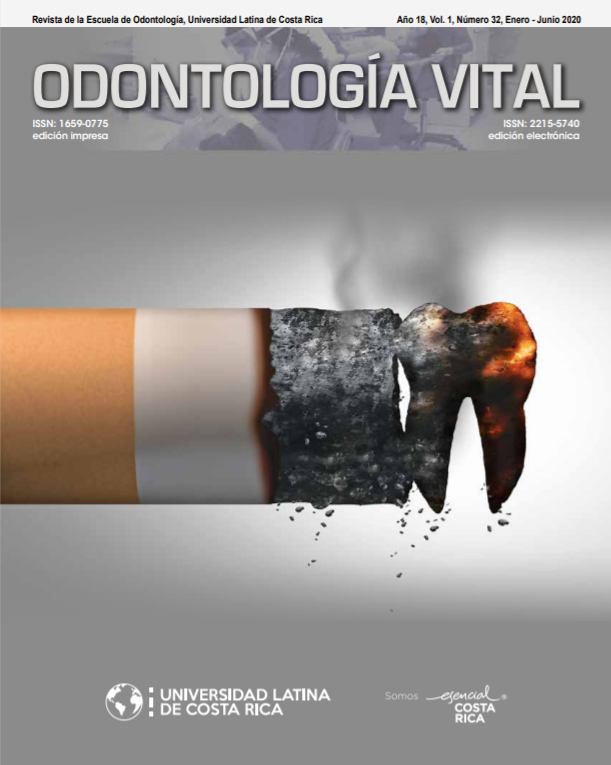Changes in salivary composition of chemically dependent subjects
DOI:
https://doi.org/10.59334/ROV.v1i32.381Keywords:
Saliva, alcohol, cannabis, cocaine, salivary composition, substance-related disorders, substance dependence, drugsAbstract
Chemically dependent subjects may present relevant changes in the volume and composition of salivary fluid
because the secretion of the salivary glands is controlled by the parasympathetic and sympathetic system. The
aim of this study was to compare the salivary concentration of total proteins, amylase, urea, calcium, phosphate
and flow rate between chemically dependent and non-chemically dependent subjects. Saliva flow rate, calcium,
phosphate, total protein, amylase and urea concentrations were measure in both groups: chemical dependent
group (n=27) and control group (n=27). Saliva samples, from the chemically dependents, were taken one day
before the beginning of the detoxification treatment. Statistical analysis was undertaken using t-test. The
salivary flow and the urea concentration did not present statistically significant difference between the groups.
However, total proteins, amylase, calcium and phosphate concentrations were statistically higher on the chemical
dependents group. Saliva composition seems to be modified by the chronic use of alcohol and illicit drugs
Downloads
Published
How to Cite
Issue
Section
License
Copyright (c) 2020 Odontología Vital

This work is licensed under a Creative Commons Attribution 4.0 International License.
Authors who publish with Odontología Vital agree to the following terms:
- Authors retain the copyright and grant Universidad Latina de Costa Rica the right of first publication, with the work simultaneously licensed under a Creative Commons Attribution 4.0 International license (CC BY 4.0) that allows others to share the work with an acknowledgement of the work's authorship and initial publication in this journal.
- Authors are able to enter into separate, additional contractual arrangements for the non-exclusive distribution of the Odontología Vital's published version of the work (e.g., post it to an institutional repository or publish it in a book), with an acknowledgement of its initial publication.
- Authors are permitted and encouraged to post their work online (e.g., in institutional repositories or on their website) prior to and during the submission process, as it can lead to productive exchanges, as well as earlier and greater citation of published work.
Métricas alternativas











